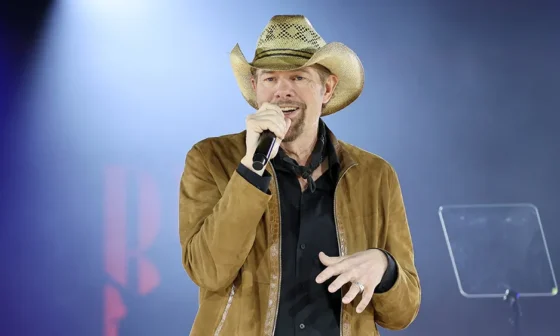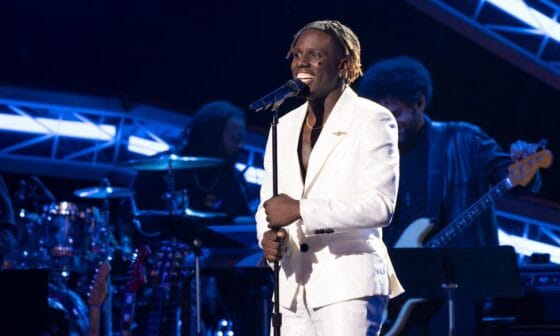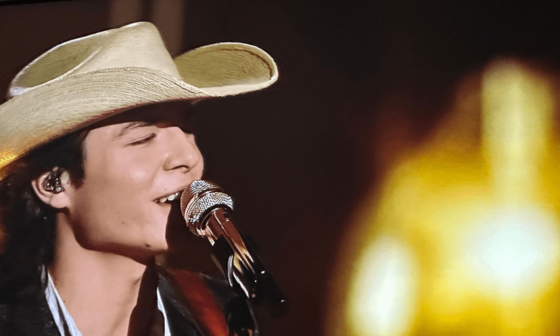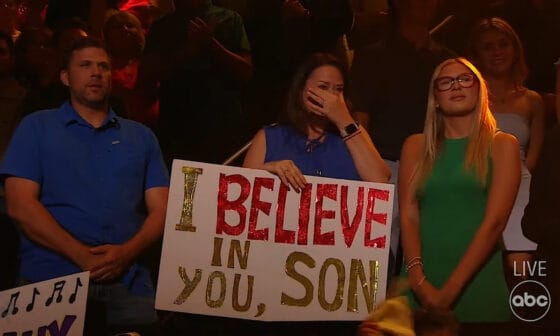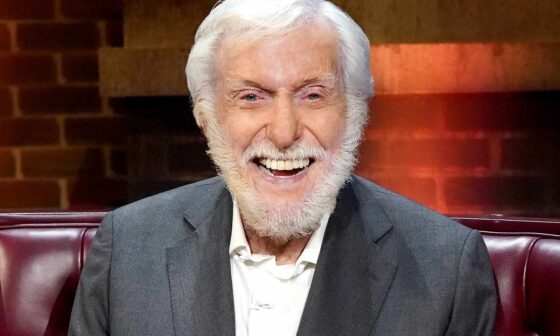On September 13, London’s Royal Albert Hall became the epicenter of music history as Queen legends Brian May and Roger Taylor stepped onto the stage for a performance that defied time itself. With the BBC Symphony Orchestra, Chorus, Singers, and the National Youth Choir — more than 300 musicians and voices strong — they unveiled a breathtaking orchestral rendition of Bohemian Rhapsody. Fifty years after its release, the anthem still carried the fire, heartbreak, and grandeur that first made it a global phenomenon.
Nearly 5,000 fans inside the hall were left in tears as the opening chords rang out. May’s guitar cut through the sea of sound like lightning, Taylor’s drums thundered beneath the swell of voices, and the air seemed to tremble with Freddie Mercury’s spirit. Watching from the royal box, Elton John dabbed his eyes, later declaring: “That wasn’t just a performance… it was a resurrection. Freddie would have been so proud.”

The event was no ordinary concert — it was the Last Night of the Proms, the grand finale of the BBC’s annual classical celebration. Broadcast live on BBC Radio 3 and televised nationwide, the spectacle turned a rock masterpiece into a symphonic epic. Ahead of the show, May and Taylor summed it up perfectly: “What a splendid way to celebrate a Queen masterpiece in its 50th year… Freddie will be loving it!”
The orchestral arrangement, crafted by Stuart Morley, elevated the song into new dimensions. British-Nigerian tenor Sam Oladeinde and award-winning soprano Louise Alder carried the lead vocals, their voices soaring above the immense ensemble. Midway through, Brian May appeared, his guitar solo igniting the crowd in a wave of emotion. And in a final dramatic flourish, Roger Taylor struck a gong, shaking the hall as Mercury’s recorded voice echoed the closing line — a haunting Easter egg that drew gasps from the audience.
After the performance, Brian May poured his heart out on social media, praising Morley’s arrangement as “the definitive orchestral version of Bohemian Rhapsody”. He applauded the soloists, conductor Elim Chan, and of course, his longtime bandmate: “I’m proud I persuaded Roger to do it… he made that gong talk!” For May, the night captured the essence of Queen itself: “Completely and utterly live and dangerous. VIVA LIVE MUSIC for all! VIVA THE PROMS!”
Bohemian Rhapsody has always defied convention. Written by Freddie Mercury in 1975, the six-minute suite blended rock, opera, and balladry into something the world had never heard before. It spent nine weeks at No. 1 in the U.K., returned to the top after Mercury’s passing, and became a cultural phenomenon once again in 1992 thanks to Wayne’s World. Today, it is enshrined in the Grammy Hall of Fame, preserved by the Library of Congress, and certified Diamond in the U.S. — proof of its immortal place in music history.
But on that September night in 2025, at the Proms’ grand finale, the song became something even greater: not just a reminder of what once was, but a living, breathing force that continues to unite generations. As the audience erupted in a seven-minute standing ovation, one truth was undeniable — Bohemian Rhapsody is more than a song. It is eternal.

